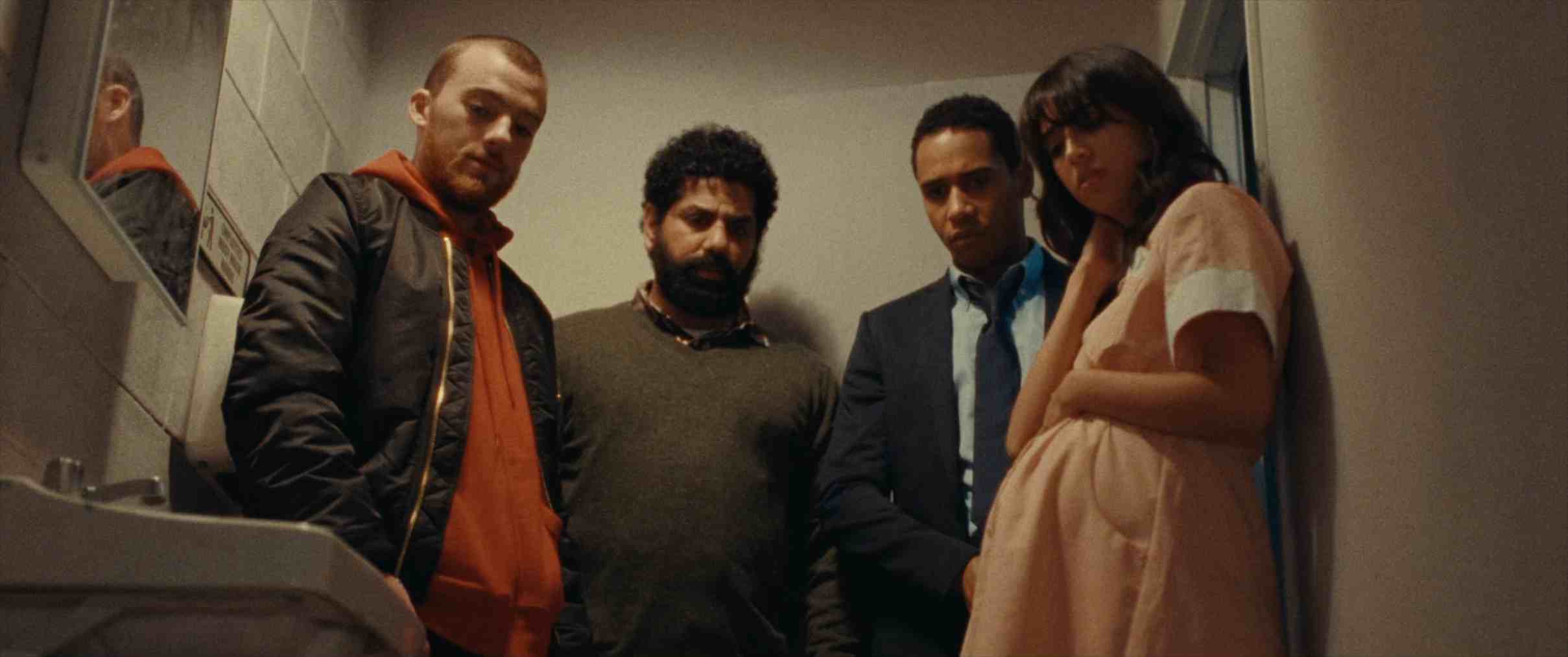The American action thriller “Your Lucky Day” (2023) has captured viewers with its gripping plot and stellar ensemble, so prepare to be swept away by the film’s enthralling universe. The film was written and directed by Daniel Brown. The story takes place late at night in a store, where a group of strangers becomes caught in an unanticipated hostage situation. The store owner Amir (Mousa Hussein Kraish), the late Sterling (Angus Cloud), a pregnant waitress Ana (Jessica Garza), the pianist Abraham (Elliot Knight), and the lottery winner Mr. Laird (Spencer Garrett) are among the cast members. The opening line of “Your Lucky Day”—”Based on the American Dream”—invites viewers to investigate the film’s themes beyond the plot. tvacute delves into whether the movie is based on a true story.
Your Lucky Day (2023) Movie Based on True Story?
Daniel Brown, the film’s director and writer, created an engaging story for “Your Lucky Day” that is fueled by a potent blend of sarcasm, social satire, and inspiration from a variety of sources. Although the movie is not based on a true story, Rider Strong starred in a 2010 short film with the same name that served as the inspiration for the movie. The story takes place on Christmas Eve at Sip ‘n’ Go, a corner store, where a seemingly ordinary lottery victory takes a sinister turn.
When a white-haired, middle-aged guy Mr. Laird becomes the center of tension following his incredible $156 million lottery victory, the story takes an unforeseen turn. he passes very soon after. A low-level drug dealer Sterling makes a move that transforms the store into a battlefield by demanding the winning ticket. Shots are fired, the situation rapidly gets out of control, and the protagonists’ fates are entwined in a competition for the much-desired ticket.
Beyond only a hostage scenario, Brown’s inspiration for the movie is found in the traditional Christmas story “The Gift of the Magi,” whereby the characters portrayed by Knight and Garza symbolize a nuanced connection. But the original idea for “Your Lucky Day” originated with a Far Side comic that told the charming yet satirical story of two coroners discovering a winning lottery ticket in a deceased man’s pocket.
“Based on the American Dream,” reads a brief screen message at the start of the movie. Beyond the current plot, Brown’s concept is to parody the contradictory nature of the American Dream. According to him, the transition from the Gold Rush era to the contemporary idea of quick wealth is a critique of the American ideal itself. The movie emphasizes the absurdity that wealth seems to keep on giving, making the wealthy richer.
Brown makes clever use of the lottery’s potent allure—a concept he is familiar with thanks to his experience in advertising. The lottery offers a supposedly transformational experience, even with its tiny chances of winning. Regarding the integrity of lottery advertising, Brown points out that, in contrast to other purchases, winning a sizable amount of money can actually improve people’s lives.
Similar to George Orwell’s dystopian classic “1984,” the movie explores how the temptation of wealth may manipulate the masses. Orwell’s critique echoes the idea that the lottery becomes a mechanism to create an illusion of economic involvement in a society where the 1% has enormous power. In George Orwell’s novel “1984,” the Ministry of Plenty sets up a lottery to maintain the lower classes’ hopes of achieving financial freedom.
It was one of Angus Cloud’s last roles before his death.
For Daniel Brown, the choice of Angus Cloud to play Sterling, the movie’s main character, was fortunate. Brown’s wife saw how Cloud portrayed Fezco in “Euphoria“ and recommended him for the part. Cloud was the ideal choice for Sterling because of his ability to capture the subtleties of the role and his sincere playing style.
Though other performers were taken into consideration during casting calls, Brown believed that Cloud was the only one who could play the character with authenticity and true understanding. With Cloud’s distinct charm, wit, and sense of style, Sterling gained more depth and stopped becoming the script’s stereotypical motormouth. Brown recognizes that Cloud stands out on set due to his extraordinary aptitude for listening and responding.
Regretfully, on July 31, not long after turning 25, Angus Cloud went gone. Following the conclusion of the movie, Brown learned of Cloud’s passing, which left him feeling incredibly sad. The movie, which was initially intended to be a collaborative effort between the filmmaker and the actor, acquired new meaning.
Brown gave Angus Cloud a personal homage by dedicating “Your Lucky Day” to him. The film ends with the straightforward but impactful words “For Angus.” The tribute speaks to Brown’s sense of duty and personal attachment to his cast. Once a creative project, the movie evolved into a memorial to a gifted individual who left us too soon, a legacy that Angus Cloud wanted to share with the world.
Finally, “Your Lucky Day” goes beyond the bounds of conventional filmmaking, providing a moving homage to the late Angus Cloud in addition to a compelling story and social commentary. This film explores cultural ideals and the complex relationships between luck, money, and the human experience in addition to being a gripping thriller.
Upon entering Brown’s vividly imagined world, spectators are not only captivated but also inspired to consider the contradictions inherent in contemporary goals. A fantastic ensemble cast and Daniel Brown’s deft writing guarantee that the film stays in the minds of its viewers.
